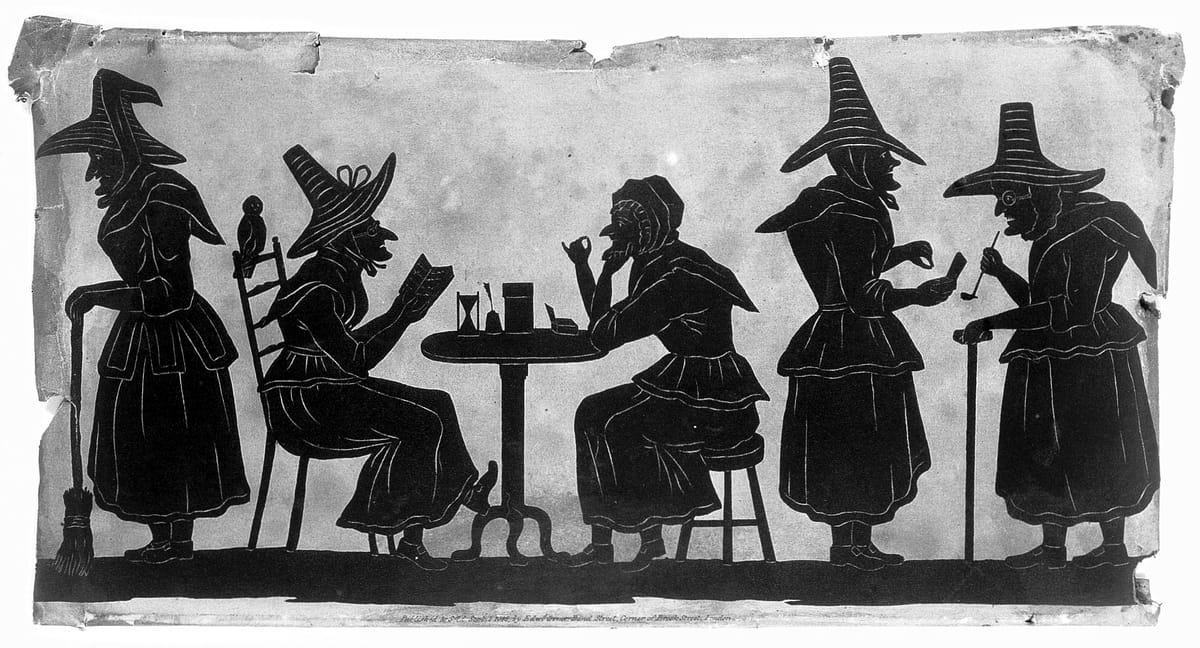Feminism's Shadowy Origins: A Look at the Occult Influences

The feminist movement, a force for social change throughout history, has a complex and often surprising past. While its achievements in securing women’s rights are undeniable, some scholars argue that its roots extend beyond the Enlightenment ideals traditionally cited. This article explores the intriguing, and sometimes unsettling, connection between feminism and the occult.
Seeds of Rebellion: The Allure of the Forbidden
The 18th and 19th centuries, the birthplaces of modern feminism, were also periods of fascination with the occult. Here’s why some women might have been drawn to these ideas:
- Challenging Patriarchy’s Grip: Dominant religions were often seen as pillars of the patriarchal system. The occult offered alternative belief systems that questioned established hierarchies.
- Seeking Empowerment: Occult practices often emphasized personal power and defying societal norms. This resonated with women seeking liberation from male control.
- Sisterhood and Community: Occult groups, particularly those led by women, offered a sense of sisterhood and community for women ostracized by mainstream society.
Beyond Coincidence: Feminist Figures and the Occult
Several prominent early feminists had documented connections to the occult:
- Mary Wollstonecraft: Author of the foundational feminist text “A Vindication of the Rights of Woman,” Wollstonecraft was also a friend of William Godwin, a prominent advocate for free love and individual liberty, with connections to occult circles.
- Madame Blavatsky: Founder of Theosophy, a philosophical movement with occult influences, Blavatsky championed women’s rights and challenged traditional gender roles.
- Emma Goldman: The anarchist feminist Emma Goldman embraced a form of feminism that rejected societal norms and advocated for free love, a concept explored in some occult traditions.
Symbols and Rituals: Unveiling the Occult Threads
Examining feminist symbolism and practices reveals potential occult influences:
- The Witch Archetype: The image of the witch, often demonized by patriarchal powers, was reclaimed by some feminists as a symbol of female defiance and self-determination.
- Rituals and Gatherings: Early feminist meetings sometimes incorporated elements of ritual and symbolism, drawing inspiration from pagan traditions.
- Focus on the Feminine Divine: Some feminist movements explored the concept of a feminine divine, a counterpoint to the traditionally dominant male God.
The Debate Continues: Was it Influence or Coincidence?
The exact nature of the connection between feminism and the occult is clear. Why this fact has been hidden for decades is strange to say the least. Here are some perspectives:
- Direct Influence: Some scholars argue that occult ideas and practices directly shaped the ideology and strategies of early feminism.
- Parallel Paths: Others believe both movements emerged during a time of social upheaval and shared a desire to challenge authority, but their goals remained distinct.
- Voluntary Ignorance: A final view is one in which people refuse to see what’s staring them in the face. Even though numerous feminist symbols and practices are directly connected to the occult.
The Takeaway: A Movement’s Multifaceted Past
The feminist movement’s story is complex. While the occult played a role in its early development, feminism’s core goals — equality, justice, and bodily autonomy — on the surface are masked as being independent of any specific belief system. Understanding these historical connections allows for a clear understanding of feminism’s origins, its ongoing evolution, and its objectives.
Most will have you think that the connection between feminism and the occult is a contested topic. Do some research and you may be surprised at what you find.
Here are some resources for further exploration:
- “Feminism and the Occult” by Marion Gibson: https://www.amazon.com/Occult-Feminism-Secret-History-Liberation/dp/B0C5S6JHZM (Examines the historical connections between feminism and various occult traditions)
- “Mary Wollstonecraft” by Claire Tomalin: https://www.amazon.com/Life-Death-Mary-Wolstonecraft/dp/0241963311
- Occult Feminism by Rachel Wilson: https://www.youtube.com/live/jVev-rGZc2o?si=yncBSX2X8sF_Z6f1
By exploring the complexities of the past, we gain priceless knowledge to help us live better, more informed lives.





